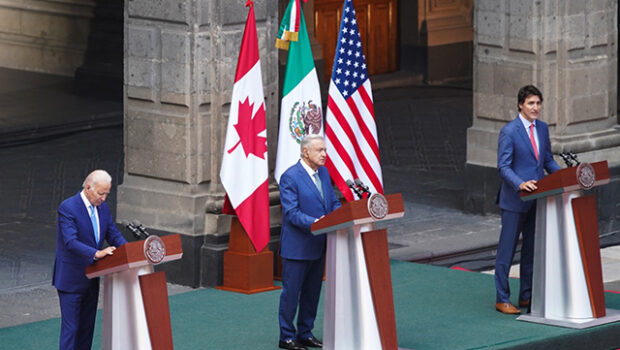Two Comments on Multiculturalism
Salman Rushdie
Is multiculturalism losing its mind? By which I mean, has it lost its intellectual spine?
Yes, it has decayed into something much less than multiculturalism, which is cultural relativism. There’s a sense in which multiculturalism exists as an obvious fact. We live in a multi-cultural, multi-racial, multi-faith and multi-ethnic world, and that’s not going to stop. This aspect is unarguable, and it is this aspect which I’ve spent most of my life celebrating. But when it decays into cultural relativism, it becomes the end of a moral sense. It means that you can say: “Well, if it’s your culture to kill writers, you should kill them because that’s what your culture dictates”. That’s the extreme caricature of it. The day-to-day reality of it has been a weakening of our sense of what our own values actually are. Instead, we constantly seek to appease people who say that our values upset them. And that is dangerous, not just for the majority communities, but more so for the minorities, because if culture relativism is the problem, then the bigger culture will always win.
And dissenting voices will be stifled
Yes. I sometimes feel that Western ears are better tuned to the most conservative Islamic voices. They want to listen to the mullahs and other assholes. But the fact of the matter is that throughout the Muslim world there are a lot of people struggling with these ideas and debating how we can have modern societies in Muslim countries. They wonder how to break the power of the priests, corrupt politicians and generals who use religion as a way of holding people back. These conversations take place very quietly, but there’s no doubt that they’re happening. It’s just that no one is looking for them. If you compare it, for instance, to the way we in the West responded to the Soviet Union, we did not listen to the official voices. We didn’t believe that Stalin or Brezhnev were the people to listen to. We sought out the different voices and gave them enormous privilege. The fact that those samizdat texts were smuggled out by Zhakarov and Solzhenitsyn and everyone else, those became what we agreed was the truth. And so we looked as the dissident voices at being more valuable than the official voices, and that played a great part in the defeat of Soviet communism. We are not doing that in this case. We are doing the opposite. And that’s our intellectual failure.
Posted: April 22, 2012 at 5:01 pm











Is multiculturalism losing its mind? By which I mean, has it lost its intellectual spine?
1. Yes, multiculturalism has lost a lot of its value. the basic idea behind ethics is the differences between right and wrong. No matter where you go, despite the cultural differences, there will always be that universal sense, for example killing someone.
And dissenting voices will be stifled
2.
The notion that Multiculturalism is losing its intellectual spine, speaks to many current examples that Salman Rushdie describes during his brief conversation with Irshad Manji about how religion, specifically Islam, has slid towards pressuring political leaders to succumb to their divine customs, compared to, in his opinion, the past or about 50 years prior. By instituting laws that prevent criticism of the religion, they are limiting the rights of others to speak to what should be overriding principles or morals. For instance the enacting of a law that prevents criticism of any specific religion, and if a complaint is served, a governing entity would need to be the deciding judge. Not freedom of speech and of the press.
By falling back on our moral universal principles for right and wrong, we should be able to respect other cultures as long as they don’t harm or prevent a sort of happiness to other cultures or people. I agree with this moral stance and first, I will quote a comment Irshad Manji said during the same conversation, “Cultures are manufactured or created”. Morals and principles however, come from the existence of a society built over time and should be universally accepted and followed. By placing negative punishment of criticizing, investigating, pondering or even analyzing any given practice by a person or group, we could potentially limit our ability to grow and move past illogical and sometimes, immoral customs.